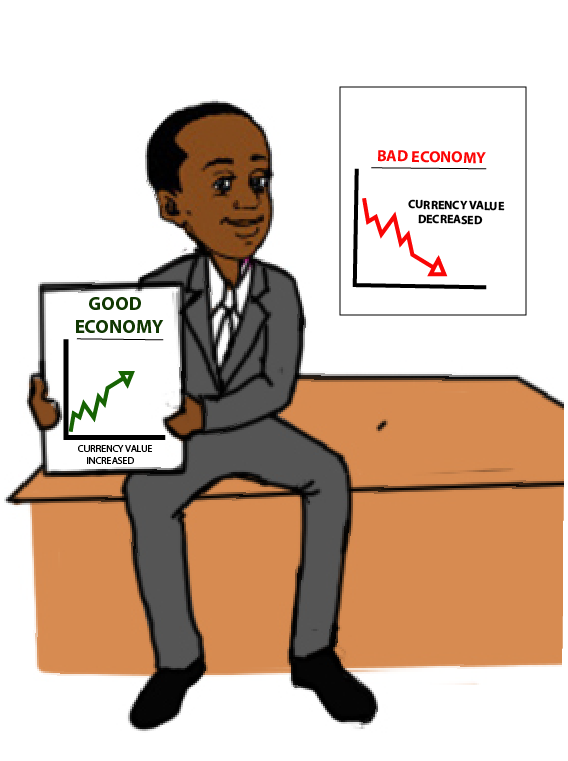 Forex Fundamental Analysis Summary is an overview of all we covered in previous lessons.
Forex Fundamental Analysis Summary is an overview of all we covered in previous lessons.
Fundamental analysis refers to the study of the country’s economy.
It also involves study of a country’s financial performance in relation to the value and future performance of its currency.
The country’s economy and financial performance is backed up by different factors.
These are;
- monetary policies,
- macroeconomic activities,
- political events
- Natural factors.
It is very important to look at the country’s economic health and its future performance in case you want to invest in that particular currency.
forex fundamental analysis summary
Major Economic Indicators
Monetary policy.
Monetary policy is a governments policy through the Central banks to control the amount of money in circulation.
It affects the currency value through use of either expansionary or contractionary policy.
The expansion policy increases money supply which lead to loss of value of the country’s currency.
When people get more money they spend more.
Demand overwhelms supply and prices keep increasing.
On the other hand,
The contraction policy restricts money circulation and this leads to increase in the value of the country’s currency.
The Central bank Increases interest rates to discourage borrowing to spend.
Interest rates.
Interest rate is a return received from saving money with a bank or financial institution. Or else an extra money paid on a loan to a bank or financial institution.
When the Central bank cuts interest rates ,
Borrowing becomes cheap and a lot of money goes to circulation.
Demand for goods and services increase and investment as well.
When demand exceeds supply, prices go high hence currency loses its value.
However,when the Central bank raises interest rate,
Borrowing expensive.
People now prefer to save than to spend.
Currency gains value in relation to other foreign currencies.
Therefore, adjusting the interest rates, the country is able to control the money in circulation and hence the value of its currency.
Inflation.
Inflation measures the persistent increase in the general prices of consumer goods and services.
Very high inflation than targeted reduces the value of the country’s currency .
The money you have today has more value than the money at a future date.
For example if last year you would buy a kg of sugar using 6 dollars but now you need 12 dollars to get the same kg of sugar. This is what inflation does.
When inflation is high, the central bank raises interest rates to reduce money in circulation.
Low inflation is a sign of slow down in economic development.
When inflation is low,
The central bank lowers the interest rates.
Basing on that, traders are able to speculate the future economic status of the country they intend to invest in.
Inflation can be measured by looking at consumer price index (CPI) data, producer price index (PPI).
Gross domestic product (GDP).
The GDP is one of the major economic indicators that measure the state/health of country’s economy.
It reflects the total value of all goods and services produced with a country for a given period.
It represents the health of the country’s economy which also reflects the value of the country’s currency.
To use GDP, you have to compare the previous data with the current data to gauge the country’s future economic status.
Unemployment.
Unemployment rate is the percentage number people able and willing to work but can’t find employment.
This is also used to gauge the health of the country’s economy and its rate of growth.
Unemployment is a lagging indicator to economic growth therefore is an important factor investors always look at to gauge the value of the country’s currency.
It can be measured using the unemployment rates data, non- farm payroll (NFP) in the US, job claims and other labor- related indicators.
Trade balances.
The trade balances show the difference between the value of the country’s major exports and imports.
When the experts are greater than imports, it indicates a surplus hence a healthy economy.
on contrary, when the import value exceeds the export value that is a deficit. A deficit reflects a bad economy.
The speeches and conferences.
Statements from very important people like the country’s president, Fed chairman, presidents of the central banks influences the markets.
They also influence the future of the country’s economy.
This can also affect the value of the currency.
Last but not least, some indicators such as political crisis news and natural calamities should also be taken serious. These rarely happen but when they occur, they make a big change on the country’s economy.
The Economic data is released on the economic calendar every day of the months and can be easily accessed online.
How Does Greed Impact your Forex Trading Success?
There are several ways greed can impact your Forex trading success. Firstly, greed can make you abandon your well crafted trading strategy in favor of impulsive and speculative actions. Instead of adhering to predetermined entry and exit points based on technical or...
-
- Topic
- Voices
- Last Post



